
Filter News
Area of Research
- (-) Clean Energy (74)
- (-) Fusion and Fission (9)
- Advanced Manufacturing (2)
- Biology and Environment (53)
- Biology and Soft Matter (1)
- Climate and Environmental Systems (3)
- Computational Engineering (1)
- Computer Science (5)
- Electricity and Smart Grid (3)
- Functional Materials for Energy (1)
- Fusion Energy (7)
- Isotope Development and Production (1)
- Isotopes (5)
- Materials (55)
- Materials for Computing (5)
- Mathematics (1)
- National Security (13)
- Neutron Science (21)
- Nuclear Science and Technology (18)
- Nuclear Systems Modeling, Simulation and Validation (1)
- Quantum information Science (9)
- Sensors and Controls (1)
- Supercomputing (54)
News Topics
- (-) Advanced Reactors (9)
- (-) Climate Change (21)
- (-) Grid (40)
- (-) Mercury (3)
- (-) Physics (2)
- (-) Quantum Science (2)
- (-) Space Exploration (4)
- 3-D Printing/Advanced Manufacturing (78)
- Artificial Intelligence (9)
- Big Data (5)
- Bioenergy (26)
- Biology (12)
- Biomedical (7)
- Biotechnology (4)
- Buildings (36)
- Chemical Sciences (17)
- Clean Water (8)
- Composites (17)
- Computer Science (26)
- Coronavirus (12)
- Critical Materials (10)
- Cybersecurity (8)
- Decarbonization (34)
- Energy Storage (73)
- Environment (55)
- Exascale Computing (3)
- Fossil Energy (2)
- Frontier (3)
- Fusion (22)
- High-Performance Computing (7)
- Hydropower (2)
- Isotopes (2)
- ITER (6)
- Machine Learning (7)
- Materials (36)
- Materials Science (29)
- Mathematics (2)
- Microelectronics (1)
- Microscopy (9)
- Molten Salt (1)
- Nanotechnology (9)
- National Security (5)
- Net Zero (4)
- Neutron Science (12)
- Nuclear Energy (30)
- Partnerships (13)
- Polymers (11)
- Renewable Energy (1)
- Security (7)
- Simulation (7)
- Statistics (1)
- Summit (4)
- Sustainable Energy (71)
- Transformational Challenge Reactor (3)
- Transportation (66)
Media Contacts
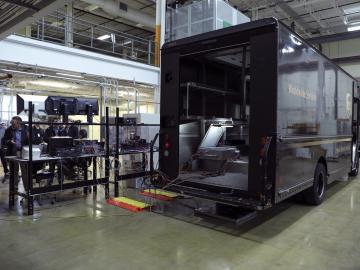
Researchers at Oak Ridge National Laboratory demonstrated a 20-kilowatt bi-directional wireless charging system on a UPS plug-in hybrid electric delivery truck, advancing the technology to a larger class of vehicles and enabling a new energy storage method for fleet owners and their facilities.
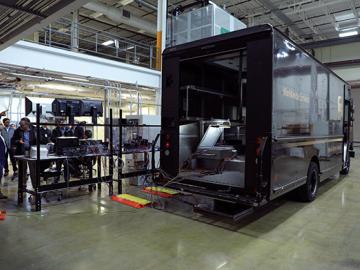
Researchers at the Department of Energy’s Oak Ridge National Laboratory (ORNL) in late February demonstrated a 20-kilowatt bi-directional wireless charging system installed on a UPS medium-duty, plug-in hybrid electric delivery truck.
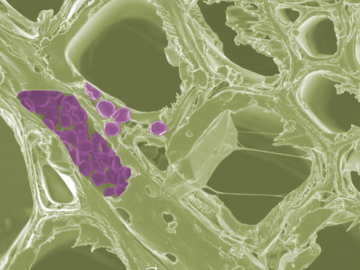
Scientists at the Department of Energy’s Oak Ridge National Laboratory have developed a new method to peer deep into the nanostructure of biomaterials without damaging the sample. This novel technique can confirm structural features in starch, a carbohydrate important in biofuel production.
A team of scientists led by Oak Ridge National Laboratory found that while all regions of the country can expect an earlier start to the growing season as temperatures rise, the trend is likely to become more variable year-over-year in hotter regions.
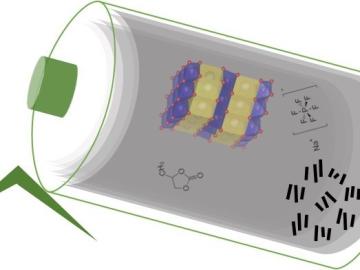
Researchers at ORNL demonstrated that sodium-ion batteries can serve as a low-cost, high performance substitute for rechargeable lithium-ion batteries commonly used in robotics, power tools, and grid-scale energy storage.

To better determine the potential energy cost savings among connected homes, researchers at Oak Ridge National Laboratory developed a computer simulation to more accurately compare energy use on similar weather days.
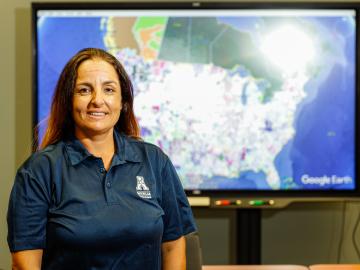
Isabelle Snyder calls faults as she sees them, whether it’s modeling operations for the nation’s power grid or officiating at the US Open Tennis Championships.
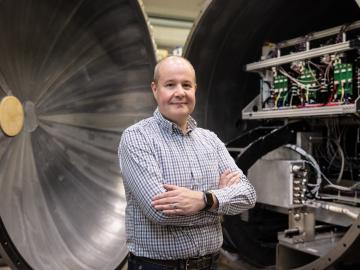
Sometimes solutions to the biggest problems can be found in the smallest details. The work of biochemist Alex Johs at Oak Ridge National Laboratory bears this out, as he focuses on understanding protein structures and molecular interactions to resolve complex global problems like the spread of mercury pollution in waterways and the food supply.
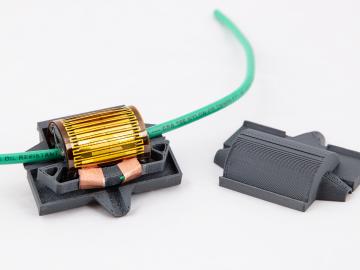
Scientists at Oak Ridge National Laboratory have developed a low-cost, printed, flexible sensor that can wrap around power cables to precisely monitor electrical loads from household appliances to support grid operations.
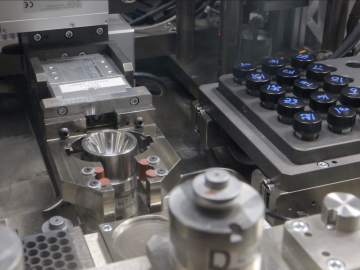
By automating the production of neptunium oxide-aluminum pellets, Oak Ridge National Laboratory scientists have eliminated a key bottleneck when producing plutonium-238 used by NASA to fuel deep space exploration.


